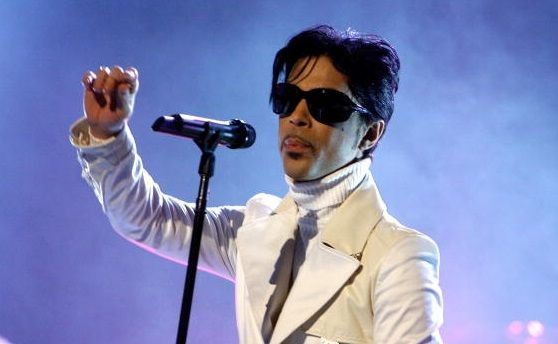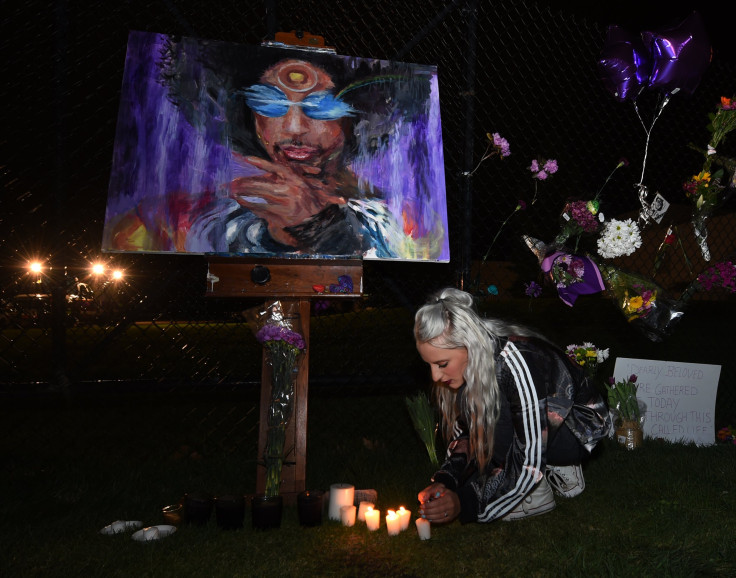How Prince Fought The Music Industry And The Internet: A Career Fraught With Legal Battles For Control

Fans hoping to stream Prince’s music in tribute to the late virtuoso Thursday were very likely disappointed by the lack of choices. On mainstream services such as Spotify and Apple Music, Prince was virtually nowhere to be found. Instead, online users had to turn to the smaller Tidal, where much of his music streams exclusively. It was either that or purchase his music by downloading it through the iTunes Store or as a physical CD.
Inconsistent? Sure. But that’s the way Prince Rogers Nelson wanted it: his music, delivered on his terms.
“Record contracts are just like — I’m gonna say the word — slavery,” Prince said as recently as August while speaking to a group of reporters at his Chanhassen, Minnesota, recording studio, Paisley Park. “I would tell any young artist ... don’t sign.”
Perhaps more than any artist in the history of recorded music, the iconic pop star, who died at his home in Minnesota Thursday, personified the never-ending tensions between music performers and the industry that profits from them. In a four-decade career beset by legal skirmishes, Prince battled with record labels, bootleggers, streaming companies, ticket resellers and internet giants such as eBay and YouTube. He was not afraid to take adversarial stands against anyone he perceived to be a threat to his artistry or his livelihood, which to him were one and the same. That included public entanglements not only with parasitic types in the recording industry but also with advocates of free speech and even his own listeners.
“The Purple One is famously protective of his music,” the alternative weekly City Pages in his native Minneapolis pointed out last year, after Prince yanked his music off the major streaming services.
Prince’s vigilant control over how and where his work was presented trickled into almost every aspect of the business, large and small. “Weird Al” Yankovic, the music parodist known for spoofing some of the biggest hits of the 1980s, once told Us magazine that Prince was the only artist who consistently turned him down. Prince even snubbed the “Guitar Hero” series of music-rhythm video games.
Whether this custodial strategy worked to his financial detriment or was the mark of a brilliant businessman is difficult to quantify. He sold more than 100 million records during his career, putting him in a somewhat exclusive club but not even in the top 40 best-selling artists of all time. At the same time, a lot has changed in the music industry since he recorded his first studio album in 1978, when most people got their music through albums or radio airplay. Prince’s battles to control his music in the face of changing business models came to embody the declining fortunes of the industry itself, where global revenue has been hammered by the digital revolution, falling to $14.97 billion in 2014 from $26.6 billion in 1999, according to the IFPI.
Last year, streaming became the dominant form of purchased music for the first time, generating $2.41 billion in the U.S. and accounting for more than one-third of the industry’s total revenue, the Recording Industry Association of America reported. As such, Prince’s relative absence from streaming services might seem to be a financial determent, but, in reality, streaming revenue has never been enough to return the music industry to its former glory. And Prince generated robust touring revenue throughout his career, notably pulling in more than $87 million during his Musicology Live 2004ever tour.
Moreover, Prince did it all on his own terms. His history of conflict with the industry goes back to his earliest days as a recording artist. In 1977, he signed to Warner Music at the age of 18, the Guardian in the U.K. reported. He released several albums under the label, but it wasn’t until 1982, with the release of “1999,” that Prince first edged into the top 10 of U.S. artists. Three years later, he boldly opened his own studio and record label, both named Paisley Park, according to a brief Rolling Stone biography. The label was distributed and partially funded by Warner Bros., so, of course, conflict ensued shortly thereafter.
During a dispute with Warner Bros. over his record contract, Prince famously spent much of 1993 performing with the word “Slave” inscribed on his cheek. He came to espouse the view that, because of his contract with Warner, the company owned and controlled him — and owned both his name and his musical output under it. His solution? In September 1993, he changed his name to an unpronounceable combination of symbols for male and female. He became known as The Artist Formerly Known As Prince, among other names. But a few months later, in February 1994, Warner dropped the distribution deal with Paisley, which subsequently folded.

The Internet Is Over
As music consumption moved from physical sales first to downloading and then to streaming, Prince appeared to find adversaries, and make enemies, at every turn. Notoriously litigious, his representatives routinely fired off copyright complaints against alleged infringers. One of his songs was at the center of a high-stakes court battle that helped establish a key legal standard for copyright holders who discover their material on sites such as YouTube. In 2007, when a YouTube user uploaded a video featuring her children dancing to Prince’s “Let’s Go Crazy,” Universal Music filed a lawsuit that went all the way to the 9th U.S. Circuit Court of Appeals.
The court upheld a position that copyright holders such as Universal can’t simply fire off copyright complaints without first considering so-called fair use, a legal term meaning that people are allowed to use a limited amount of copyrighted material without permission under certain conditions. The clip in question was 29 seconds long. Prince’s stance against the minor use of his music put him at odds with First Amendment advocates such as the Electronic Frontier Foundation, which represented the YouTube user and called the court’s decision an “important win” for free speech.
A common thread that tied together many of Prince’s battles was an insistence that he should be paid for his music, an idea running counter to the internet’s culture of free. He wasn’t alone in that fight. Artists from Thelonious Monk to David Bowie famously fought with their record labels, and when iTunes and Pandora came along, the industry had no shortage of holdouts, including bands such as AC/DC and Pink Floyd.
“I don’t see why I should give my new music to iTunes or anyone else,” Prince told the Daily Mirror in the U.K. in 2010. “They won’t pay me an advance for it, and then they get angry when they can’t get it.”

While other artists embraced digital exposure at the expense of lost revenue, Prince fought vehemently to wrest control of his music from the masses as user-generated media proliferated. Each new digital platform seemed to incur his wrath. In 2013, his NPG Records issued a complaint under the Digital Millennium Copyright Act against Twitter’s Vine, a short-form video application, over eight six-second clips that featured Prince’s music, Rolling Stone reported. And in 2014, he sued 22 fans for posting links to bootlegged copies of his concerts on file-sharing sites.
One of his last salvos against the industry came last year when he pulled his music from Spotify, the market leader in music streaming, as Variety reported. That decision clearly reverberated into Thursday afternoon when fans mourning the pop star looked for his music there only to come up short and vent their frustrations on Twitter.
Music fans have a right to be bummed, but they can take solace in knowing that Prince, through his exertion of force, pushed forward conversations about the value of music and fights over fair compensation that are still being waged today. If his rightful heir is Taylor Swift, who famously took on Apple last year — and won — that probably won’t do much to console grieving fans. But it’s a start.
© Copyright IBTimes 2024. All rights reserved.






















